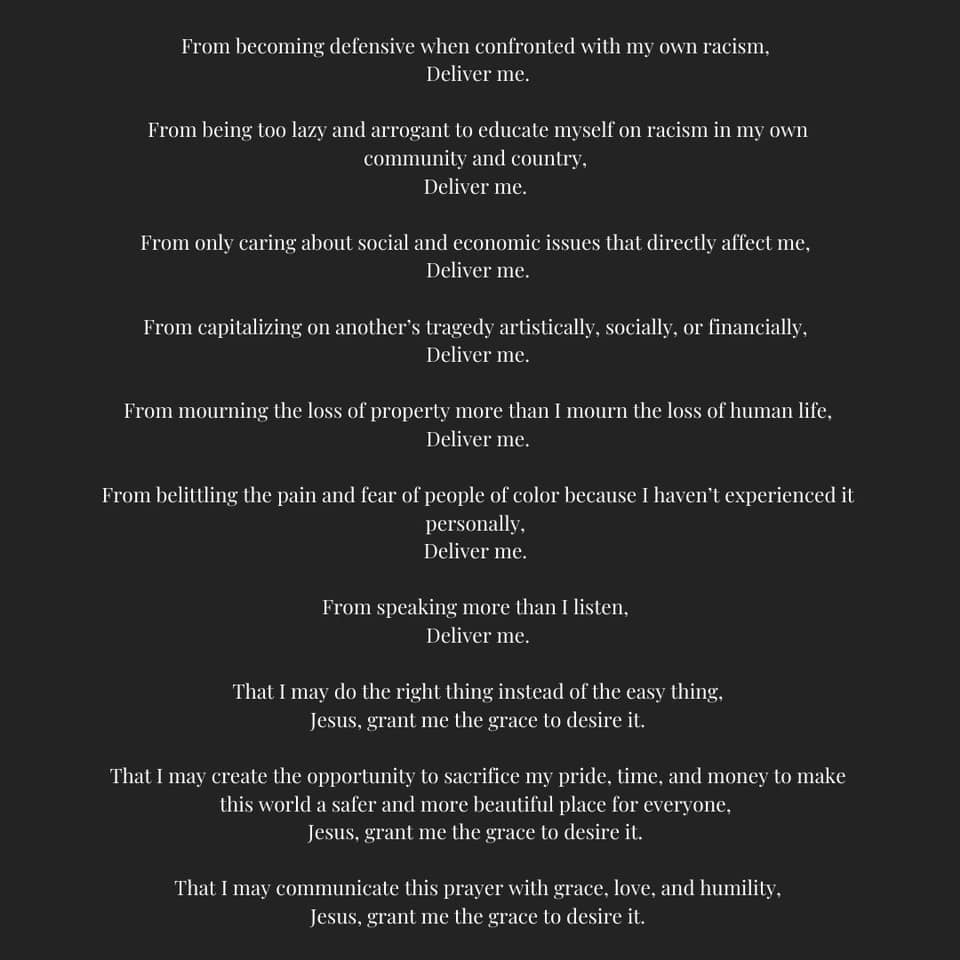“Therefore, whoever breaks one of the least of these commandments and teaches others to do so will be called least in the Kingdom of heaven. But whoever obeys and teaches these commandments will be called greatest in the Kingdom of heaven.”
In hearing the conclusion of today’s Gospel, I cannot help but think about the events taking place in our country over the past couple of weeks. Between the horrific killing of George Floyd and those protests that devolved into violence, it appears that we have forgotten the greatest commandment to “love one another; even as I have loved you.”
If we truly loved one another as Christ has loved us, we would see each human being as our brother or sister in Christ, regardless of race, ethnicity, social status, and the many other labels that society tries to slap on us. If we truly loved one another as Christ has loved us, we would recognize the inviolable human dignity that each person has, being made in the image and likeness of God.
But, what happens when we fail to love? When we fail to see every person as a brother or sister in Christ? When we fail to see their dignity as a human person? When we fail to follow the greatest commandment? Well, it is then that we struggle to follow even the least of the commandments that Jesus has given to us. That’s when sin becomes as prevalent as it is in the world today, when it takes root in our hearts when we struggle to follow Jesus’ commands.
Paragraphs 1868-1869 of the Catechism of the Catholic Church help us to see the connection between personal sin and social structures of sin. “Sin is a personal act. Moreover, we have a responsibility for the sins committed by others when we cooperate in them:
-By participating directly and voluntarily in them;
-By ordering, advising, praising or approving them;
-By not disclosing or not hindering them when we have an obligation to do so;
-By protecting evil-doers.
Thus sin makes men accomplices of one another and causes concupiscence, violence, and injustice to reign among them. Sin gives rise to social situations and institutions that are contrary to the divine goodness. ‘Structures of sin’ are the expression and effect of personal sins. They lead their victims to do evil in their turn. In an analogous sense, they constitute a ‘social sin.’”
What is there to do, then? How can we uproot the sin in our own hearts to help bring about change in our lives and in our society? We must pray for the conversion of hearts – our own hearts and the hearts of others. We must look interiorly, identifying those areas of our own life where we struggle with sin and put in the conscious effort to fix those areas. But, most of all, we must love. Through Jesus’ sacrifice on the cross, love conquered sin and death. Now, when we love, we will conquer hate as well.

Erin is a Cleveland native and graduate of the Franciscan University of Steubenville. Following graduation, she began volunteering in youth ministry at her home parish of Holy Family Church. Her first “big girl” job was in collegiate sports information where, after a busy two years in the profession on top of serving the youth, she took a leap of faith and followed the Lord’s call to full-time youth ministry at St. Peter Church. She still hopes to use her communication arts degree as a freelance writer and statistician, though. You can catch her on the Clarence & Peter Podcast on YouTube as well as follow her on Twitter @erinmadden2016.





